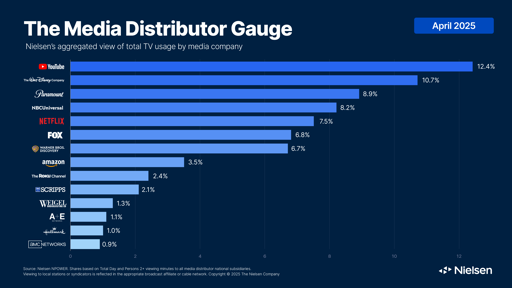Half of companies planning to replace customer service with AI are reversing course
-
Some of them should have bankrupted before that happened.
Bankruptcy for a company isn't a thing anymore, it's exclusively for people who get cancer now
-
This post did not contain any content.
Can we get our customer service off of "X former know as Twitter" too while we're at it?
-
I will note that AI customer service could be an improvement. Customer service helpline jobs are one of the worst jobs to get paid peanuts to do.
Of course, my preference is to upgrade the crap voice recognition system with an AI voice recognition system, which is way better at understanding words. The help desk jockeys can stay, as they do the real work.
Yeah, it could be, but these guys aren't looking to replace human workers with a robust, well-trained, and properly-deployed AI, they're looking to slash and burn their labor costs with whatever they think will squeak by.
I've used Amazon's AI live chat bots a fair bit over the years and I have to say they're actually pretty good. 90% of the time they can resolve the issue themselves (at least in my experience) and faster than it would take to connect to a person. But most people don't have Amazon's budget or customer service-oriented business model.
-
That can be accomplished with basic if-else decision tree. You don't need the massive resource sink that is AI
Plus the halucination risk.
-
This post did not contain any content.
The transition to an AI-focused business world is proving to be far more challenging than initially anticipated.
No shit, Sherlock.
-
In the case of Air Canada, the thing the chatbot promised was actually pretty reasonable on its own terms, which is both why the customer believed it and why the judge said they had to honour it. I don't think it would have gone the same way if the bot offered to sell them a Boeing 777 for $10.
Someone already tried.
A television commercial for the loyalty program displayed the commercial's protagonist flying to school in a McDonnell Douglas AV-8B Harrier II vertical take off jet aircraft, valued at $37.4 million at the time, which could be redeemed for 7,000,000 Pepsi Points. The plaintiff, John Leonard, discovered these could be directly purchased from Pepsi at 10¢ per point. Leonard delivered a check for $700,008.50 to PepsiCo, attempting to purchase the jet.
-
They did the same for me when my mother passed (no AI, just assholes though).
Very true. Air Canada doesn’t need AI to be terrible.
-
The transition to an AI-focused business world is proving to be far more challenging than initially anticipated.
No shit, Sherlock.
Phone menu trees have their place, they can improve customer service - if they are implemented well, meaning: sparingly - just where they work well.
Same for AI, a simple: "would you like to try our AI common answers service while you wait for your customer service rep to become available, you won't lose your place in line?" can dramatically improve efficiency and effectiveness.
Of course, there's no substitute for having people who actually respond. I'm dealing with a business right now that seems to check their e-mails and answer their phones about once per month - that's approaching criminal negligence, or at least grounds for a CC charge-back.
-
Someone already tried.
A television commercial for the loyalty program displayed the commercial's protagonist flying to school in a McDonnell Douglas AV-8B Harrier II vertical take off jet aircraft, valued at $37.4 million at the time, which could be redeemed for 7,000,000 Pepsi Points. The plaintiff, John Leonard, discovered these could be directly purchased from Pepsi at 10¢ per point. Leonard delivered a check for $700,008.50 to PepsiCo, attempting to purchase the jet.
What a cucked judgement. I would have ruled for the plaintiff, with prejudice
-
Can we get our customer service off of "X former know as Twitter" too while we're at it?
Sure, once it is no longer one of the most popular social media platforms.
-
Sure, once it is no longer one of the most popular social media platforms.
Why does your customer service need to be on a popular platform? There's no network effect.
-
Hilariously, many of these companies already fired staff because their execs and upper management drank the Flavor-Aid. Now they need to spend even more rehiring in local markets where word has got round.
I’m so sad for them. Look, I’m crying

It has the same energy as upper management firing their IT staff because "our systems are running fine, why do we need to keep paying them?"
-
They're trying to use AI to take over the overseas jobs that took over our jobs.
I feel no sympathy for either the company, the AI, or the overseas people.
It does make me smirk a little though.
Why not the overseas people?
-
Phone menu trees have their place, they can improve customer service - if they are implemented well, meaning: sparingly - just where they work well.
Same for AI, a simple: "would you like to try our AI common answers service while you wait for your customer service rep to become available, you won't lose your place in line?" can dramatically improve efficiency and effectiveness.
Of course, there's no substitute for having people who actually respond. I'm dealing with a business right now that seems to check their e-mails and answer their phones about once per month - that's approaching criminal negligence, or at least grounds for a CC charge-back.
AI + worker effort is the sweet spot for efficiency and accuracy
-
Are porn sites replacing staff with AI though? Not content since that comes from contributors for the most part, but actual porn site staff.
No idea honestly.
AI-based romantic companions, sexting, and phone-sex are going to be huge if they aren't already. It's like "Her", because we live in a Black Mirror episode.
-
Oh my God... The best/worst thing about the idea of AI porn is how AI tends to forget anything that isn't still on the screen. So now I'm imagining the camera zooming in on someone's jibblies, then zooming out and now it's someone else's jibblies, and the background is completely different.
It's a solvable problem with larger context buffers, but the resource requirements grow exponentially.
-
Most of the time when I talk to a chat bot it's because I need to contact support for an issue only support can help me with, but unfortunately the company in question is Id.me and they apparently don't have support of any kind and all these tickets I've been writing have been going into a paper shredder
all these tickets I’ve been writing have been going into a paper shredder
Try submitting tickets online. Physical mail is slower and more expensive.
-
AI + worker effort is the sweet spot for efficiency and accuracy
Yeah but these pesky workers cut into profits because you have to pay them.
-
It has the same energy as upper management firing their IT staff because "our systems are running fine, why do we need to keep paying them?"
The IT paradox :
-"Why am I paying for IT? everything runs fine"
-"Why am I paying for IT? nothing works"
-
Phone menu trees have their place, they can improve customer service - if they are implemented well, meaning: sparingly - just where they work well.
Same for AI, a simple: "would you like to try our AI common answers service while you wait for your customer service rep to become available, you won't lose your place in line?" can dramatically improve efficiency and effectiveness.
Of course, there's no substitute for having people who actually respond. I'm dealing with a business right now that seems to check their e-mails and answer their phones about once per month - that's approaching criminal negligence, or at least grounds for a CC charge-back.
Phone menu trees
I assume you mean IVR? It's okay to be not familiar with the term. I wasn't either until I worked in the industry. And people that are in charge of them are usually the dumbest people ever.
-
-
The Current System of Online Advertising has Been Ruled Illegal by The Belgian Court of Appeal. Advertising itself is Still Allowed, but not in a Way That Secretly Tracks Everyone’s Behavior.
Technology 1
1
-
A judge set the timeline for the Amazon antitrust trial, which starts on February 9, 2027
Technology 1
1
-
-
-
YouTube's new ad strategy is bound to upset users: YouTube Peak Points utilise Gemini to identify moments where users will be most engaged, so advertisers can place ads at the point.
Technology 1
1
-
-




